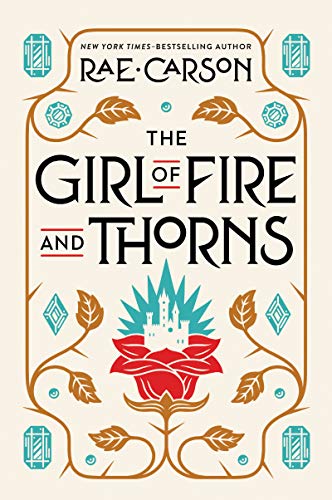(Part 2) Top products from r/YAwriters
We found 22 product mentions on r/YAwriters. We ranked the 306 resulting products by number of redditors who mentioned them. Here are the products ranked 21-40. You can also go back to the previous section.
24. Good Omens: The Nice and Accurate Prophecies of Agnes Nutter, Witch
Sentiment score: 0
Number of reviews: 1
Great product!
 Show Reddit reviews
Show Reddit reviews25. Good Omens: The Nice and Accurate Prophecies of Agnes Nutter, Witch (Cover may vary)
Sentiment score: 1
Number of reviews: 1
 Show Reddit reviews
Show Reddit reviews27. The Girl of Fire and Thorns
Sentiment score: 0
Number of reviews: 1
Greenwillow Books
 Show Reddit reviews
Show Reddit reviews28. The Bitter Kingdom (Girl of Fire and Thorns)
Sentiment score: -1
Number of reviews: 1
Greenwillow Books
 Show Reddit reviews
Show Reddit reviews31. Defy the Dark
Sentiment score: 1
Number of reviews: 1
Used Book in Good Condition
 Show Reddit reviews
Show Reddit reviews32. The Secret Diary of Adrian Mole, Aged 13 3/4
Sentiment score: 0
Number of reviews: 1
Harper Teen
 Show Reddit reviews
Show Reddit reviews34. The Endless Steppe: Growing Up in Siberia
Sentiment score: 1
Number of reviews: 1
 Show Reddit reviews
Show Reddit reviews35. Ella Enchanted (Trophy Newbery)
Sentiment score: 0
Number of reviews: 1
HarperTrophy
 Show Reddit reviews
Show Reddit reviews37. The Curious Incident of the Dog in the Night-Time
Sentiment score: 1
Number of reviews: 1
VINTAGE
 Show Reddit reviews
Show Reddit reviews










Adult Dystopian Recommendations:
YA-ish Dystopian Recommendations:
Other Dystopias:
mommyanddaddynon-biological guardians shouldn’t say no. Also, it sucks to have a guidance counselor Make A Schedule for you in order to prepare you for an office job equivalent that’s full of busywork but one of the few respectable positions left. The horror! Seriously, in what world is that rebelling against socialism? You know, that thing that promotes trade schools and equal rights for everyone, even the people you don’t personally like?I’d also be curious to hear what /u/bethrevis has to say about the societies on Godspeed and elsewhere and where they fit into this opinion piece.
Guys, I think I just wrote an English essay. And probably put more work into it than I did in high school. And I won’t even get an A because it’s the internet and we deal solely in lolcats.
But tl;dr: Adult dystopias (that I’ve read) tend to be about the futility of existence or the necessity of self-sacrifice to get a result. The YA dystopias I liked were a little more hopeful (usually) and didn’t support this opinion piece’s thesis. The ones I didn’t like made me understand the hate for dystopias.
Wow! Four eighth grade girls crowding around a single chair to read “Salt to the Sea?” You’ve made my day. And thank you for your questions! Answers:
• I think fiction as a medium for learning about history can be extremely helpful but it’s essential that source material and the real stories be studied as well. After all, historical fiction sits on the shoulders of nonfiction, academic writing, history books, journals, memoir, etc. I love when students become historical investigators and set out to dig up the truth.
• Other WWII historical fiction novels I would recommend are “All the Light We Cannot See,” by Anthony Doerr, “Skeletons at the Feast,” by Chris Bohjalian, and Elizabeth Wein’s novels. An older book, “The Endless Steppe: Growing Up in Siberia” by Esther Hautzig is wonderful too:
https://www.amazon.com/Endless-Steppe-Growing-Up-Siberia/dp/006440577X/ref=tmm_pap_swatch_0?_encoding=UTF8&qid=1466460906&sr=1-1
• In terms of grants or fellowships, National Endowment for the Arts has some large grants available https://www.arts.gov/grants-individuals/creative-writing-fellowships
On a state level, I’ve known of historical authors who have received state grants through the Arts Commission or Humanities office.
Hope this is helpful and thanks for your questions!
Hi! Nice to finally "meet" you all. :D
I'm Amy Kim Kibuishi, formerly Amy Kim Ganter. I started my career as a graphic novelist/freelance illustrator, but I decided to write prose six years ago. It was always my first love, long abandoned because I thought I could never be good enough. I hope to prove myself wrong, one day.
I am mostly known for writing/drawing a two book graphic novel called "Sorcerers & Secretaries," and an online comic called "Reman Mythology."
These days I just write and take care of my two lovely kids (1-yr-old and a 3-yr-old).
Personal Links:
Published Comics:
Anthologies that feature my comics:
My current WIP
Rival by Sara Bennet Wealer would fit that description. It's about two girls who used to be best friends (still are? I'm not 100% sure as I've not read it) but whose competitiveness drove them apart.
Does The DUFF have toxic friends, or is it just that the main character perceives that they look down on her?
EVERYONE SHOULD READ KAT AND MEG CONQUERS THE WORLD WHEN IT COMES OUT ON NOVEMBER 7!! IT IS SERIOUSLY DELIGHTFUL. HERE. HERE'S AN AMAZON LINK. AND A GOODREADS LINK.